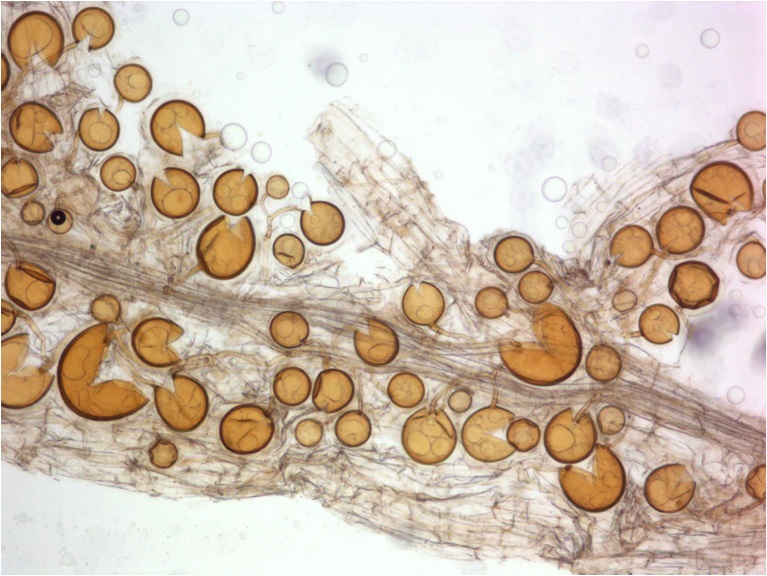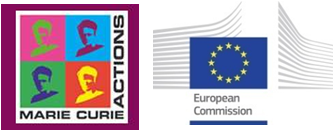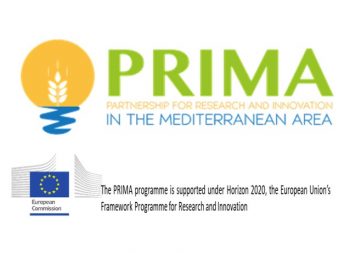Plant symbiosis with AM fungi is very extensive in nature, most higher plants being mycorrhizal, and it is known to improve plant growth and nutrition, particularly regarding phosphorus but also to ameliorate drought stress and provide protection from pathogens. Our group in collaboration with the group of Prof. Ehaliotis from the Agricultural University of Athens and the company Phytothreptiki S.A. is working towards the development of indigenous AM fungal inocula conferring crop tolerance to drought and salinity stress. Our hypothesis is that indigenous AM fungi that dominate in ecosystems exposed to salinity and/or drought stress are likely to be good candidates for promoting plant growth in agricultural soils in the Mediterranean region where crops are cultivated at poor and marginal soils. Several inocula have been isolated from such ecosystems and some of them were particularly effective in promoting crop yields. This line of research has expanded to include a number of biotic stresses, mainly fungal pathogens in important crop plants (tomato and olive) in the framework of INTOMED project. In addition to AM fungi, we are currently working, always in collaboration with the Agricultural University of Athens and Phytothreptiki S.A. on the isolation and screening of endophytes, fungi and bacteria, with potential beneficial activity for horticultural crops.
Beyond fungal inocula, we also study the factors that shape the AM fungal communities in agricultural and non-agricultural ecosystems, using amplicon sequencing tools, which could capture the full intradical diversity of AM fungi.

Funding
- Marie Curie Reintegration Grand "ECOMYCORRHIZA - The effects of agronomic practices conducive to organic agriculture on the diversity and function of arbuscular mycorrhizal fungi", Benefited Fellow: Dr I. Ipsilantis, Funding: EC-FP7 Proposal 204792, Duration 1/10/2007 – 30/9/2010
- Innovative Research Vouchers for SMEs, Evaluation of arbuscular mycorrhizal fungi as a biotechnological tool for the optimization of P uptake by plants. Funding: General Secretariat of Research and Technology, Duration 18/4/2011 – 18/8/2011
- THALIS project, Contribution of Mycorrhizae to the sustainability of marginal Mediterranean ecosystems – development of mycorrhizal inocula. Funding: General Secretariat of Research and Technology/Ministry of Education, Duration: 1/2/2012 – 31/6/2015.
- Support of New SMEs for Research and Technology Activities, Title: Isolation of indigenous arbuscular mycorrhizal fungi and development of mycorrhizal inocula used for rhizosphere inoculations and the production of soil improvers. Funding: General Secretariat of Research and Technology, Greece, Duration: 2013-2015, Collaborators: Phytothreptiki SA., Agricultural University of Athens
- RESEARCH-CREATE-INNOVATE call, Title: Mixed microbial inocula for vegetable production in the Western Peloponnese – application to soil, propagating material, hydroponics, enhanced growth substrates. Funding: General Secretariat of Research and Technology, Greece, Duration: 2018-2020, Collaborators: Phytothreptiki SA., Agricultural Development SA., Agricultural University of Athens
- PRIMA programme, Section 2. Title: Innovative tools to combat crop pests in the Mediterranean, Funding: General Secretariat of Research and Technology, Duration: 2019-2022.



Personnel
Dr Myrsini Kakagianni
Maria Feka, PhD studenτ
Marianna Avramidou, PhD student
